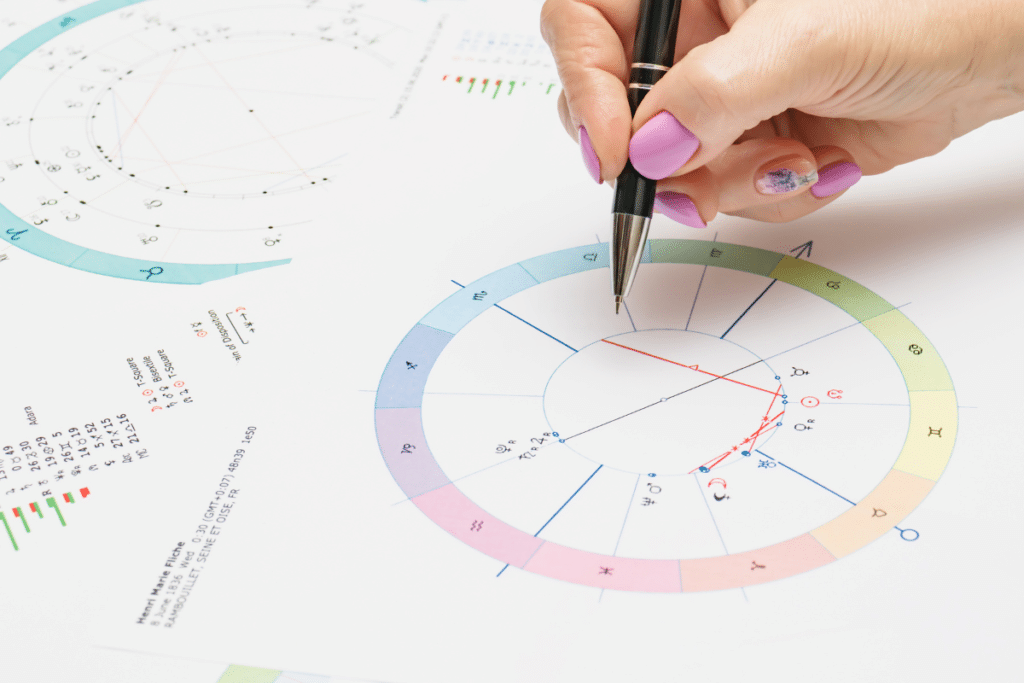Are You Highly Sensitive?

Have you often been called “too sensitive” or “overreactive” by others? Are you told that you need to just ‘let it go,’ and ‘don’t make such a big deal out of it’? Do you feel overwhelmed by your emotions or the environment around you?
Maybe you’ve been told that you’re just the person someone wants to open up to or you always seem to know what they need. Perhaps you notice things others don’t and are good at preventing potentially dangerous or unhelpful situations because you anticipate the potential.
If these resonate, you may have a trait known as Sensory Processing Sensitivity (SPS), or more commonly, High Sensitivity (HS). I actually prefer the term Highly Sensing, because in our society ‘sensitive’ has a heavy, negative connotation. So I’ll be using the term Highly Sensing here, which is very appropriate considering the way we perceive information.
What is being Highly Sensing all about?
First, let’s look at what high sensitivity is NOT:
-A diagnosis, disorder or a condition or anything that needs to be fixed
-A choice
-Being overly dramatic
-Weakness or fragility or being overly-feminine
-Shy or introverted
-Anti-social
-A direct result of trauma (trauma can exacerbate the existing trait)
-Sensory Processing Disorder, ADHD, autism
So being HS is nothing to be ashamed of, nor to fix or get rid of. As we go, I’ll be helping you see that it’s really quite a remarkable trait that can be an amazing gift. If you’re new to understanding this trait, or have been struggling for a while, this can seem out of the realm of possibilities, but stay with me.

So, what IS High Sensitivity?
HS is a personality trait characterized by heightened sensitivity to internal and external stimuli, including sensory, emotional, and social experiences. It’s a genetic trait…we’re born this way. I liken it to being left or right handed. It’s just the way we’re wired. Brain scans actually show differences between sensitive and non-sensitive people in “brain regions involved in awareness, attention, and action planning” and our mirror neurons…those things that make us yawn or smile when someone else does, are activated much earlier and more intensely.
And, surprising to some, the female/male ratio is 50-50 and 30% of us are extroverted. Some may be shy, but it’s not part of the trait.
Elaine Aron, a psychologist and researcher, coined the term “highly sensitive person” (HSP) in the 1990s and identified it as a personality trait that affects around 20% of the population. Aron also developed the acronym D.O.E.S. to describe the four main aspects of Sensory Processing Sensitivity:
Depth of processing:
HSPs process information deeply and reflect on it longer than non-HSPs. They tend to analyze information from different angles and see the big picture.
Think of us as giant sponges without the same number or effective filters that non-HSPs have. We are bringing in a much larger amount of input than average, and all of it is important! We give great meaning to things, including those which other consider insignificant or just haven’t considered at all.
Have you ever had a discussion with someone and a few days later you brought it up and offered more thoughts, only to find that the person hardly recalled the conversation? Or they may have responded with, “That was days ago. Why are you still thinking about that?” Well, you’ve been processing it and now have a very thorough, thought out response!
Overstimulation (and overwhelm):
Highly Sensing People can become overwhelmed by external stimuli, such as loud noises, bright lights, or strong smells, even textures, more quickly and to a greater extent than non-HSPs. This can lead to being easily stressed or anxious in busy environments. We also feel others’ energy more strongly and this can be a lot to manage.
If you’re Highly Sensing and you meet a friend for dinner, you may be very distracted by the piped in music, the conversations at the tables around you, aware of the phone ringing at the host’s desk and the squeaky door opening repeatedly as the servers slip into and out of the kitchen. Your friend may not notice any of this, but for you it can be a challenge to stay focused on your conversation, and you may feel very tense and on edge.
And because of the differences in the amygdala in our brains, we can tend toward being in fight/flight/freeze/fawn mode nearly 24/7 without the right tools.
Emotional reactivity (and empathy):
HSPs have intense emotional reactions, both positive and negative, to their experiences. They may be more empathetic towards others, but they can also be more sensitive to criticism or rejection.
Because we feel deeply, and react differently to events, we can grow tired of hearing that we’re too reactive, our emotions are too big, we respond in the wrong way, and decide to stuff these emotions. This allows us to avoid negative responses from others and the intensity of feeling the negative, but it also keeps us from experiencing the amazing positive emotions. If we allow our emotions, we can feel intense joy and love and other higher vibration feelings.
Sensing the subtle:
Those with High Sensitivity notice the little things that most others may miss or not respond to. This can be things that annoy us, but it can also be things that add amazing value or enjoyment to situations.
You’ve likely heard of the ‘canary in the coal mine’ comparison, and we are the canaries. We’re the first to see, hear, smell or just sense when something is off, but also things of value or benefit.

Common Struggles
So, what’s it like to be Highly Sensing? As an HSP you may find that the world just seems to big, too busy, too loud and too insensitive. We tend to react to inhumane treatment of other people, animals and the planet. Because we feel energy we can become overwhelmed in large groups or when spending time around people stuck in a negative vibration.
We also get very tired of hearing that we’re ‘too’ this and ‘not enough’ that…not fitting into the mold. We can have a very challenging time handling rejection or any kind of criticism, as we tend to have a need for everyone to be ok and to like us. We tend toward perfectionism and needing to go the extra mile to be seen as ok.
We also can become overwhelmed to the point of exhaustion and illness, or just find ourselves hibernating so we don’t have to engage.
HSPs can either develop good coping strategies and even excel more in some ways more easily than non-HSPs, or the reverse. We’re effected by our childhood experiences, as is everyone, and if we had a supportive, safe, loving upbringing we’re likely to be staged for succeeding and developing healthy tools. If not, there’s a stronger likelihood of turning toward unhealthy behaviors such as substance use or other addictions, or experiencing anxiety and depression.
One very common struggle for HSPs is experiencing life as a doormat. We can have a hard time setting and maintaining healthy boundaries, or feel guilty for doing so. Wanting everyone to be happy and not have hurt feelings, and be happy with us, can leave us ignoring our own needs.
It’s not all doom and gloom though! It’s good to be aware of and recognize how some of your experiences may be connected with your high sensory trait, so you can validate your reality and reframe your past and current life. And, it’s very important to realize that there are amazing benefits to sensitivity.
Creativity:
HSPs tend to be very creative, as we are more attuned to our emotions and experiences. We may be drawn to artistic fields such as writing, music, or visual art, or show great creativity in work projects or other nonartistic endeavors
It’s likely that your favorite writer, actor, musician or visual artist is Highly Sensitive. If you haven’t seen the movie Sensitive: The Untold Story, I recommend it highly. It’s the brainchild of Elaine Aron, and singersongwriter Alanis Morissette is the primary spokesperson and shares her experiences as an artist and HSP.
Empathy:
HSPs have a strong ability to empathize with others and may be drawn to helping professions such as counseling or coaching. We can pick up on subtle cues and nuances in others’ behavior and emotions.
Attention to detail:
Because we sense the subtle, HSPs tend to be very detail-oriented and meticulous in our work. Very little goes on without our notice. That can be a great advantage. We may excel in fields such as science, engineering, or research. We can tend toward perfectionism and be too hard on ourselves, but with the right mind set and habits we can make this characteristic a true benefit, to ourselves and our employers or employees, and the world.
Intuition:
HSPs have a strong sense of intuition and can often pick up on subtle changes in our environment. We may have a “gut feeling” about certain situations or people. Sometimes we don’t listen to these feelings, especially if we think it can have a negative response, but when we do, we’re usually right on.
One of the reasons I chose Highly Sensing People as my primary coaching niche was hearing from many that they’d had coaching or counseling in the past, but could only go so far because they didn’t feel truly heard or understood, as they were with me. My own sensitivity allows me to intuit what might help my clients not only because I experience life as an HSP, but because I can pick up on what’s going on with them and what can help.
Seeing the big picture:
We tend to think outside the box and consider all sides. This can be very helpful in a work environment or in helping groups, such as families, function more cohesively. We can see what will create win-win scenarios and allow for equality and support. It also helps us recognize things that others haven’t considered.
Appreciation:
Because we notice things and process them deeply and give great meaning to things, we tend to be moved deeply by nature, beauty, art and sometimes just the simple, ‘insignificant’ things in life. We tend to respond to positive stimuli even more than non-HSPs. This allows for a vibrant experience of life.
There are many other benefits. You might be thinking of a few right now.
It’s also good to realize that many of the things others like about you are likely a result of your trait. For you, it’s just normal and the way you would expect everyone else to be, do or act, but it’s often not the norm. If you stopped being the caring, empathetic, aware person you are and taking care of things others don’t even recognize, they would definitely realize the benefits of your trait through what’s missing that they count on.
So, how do you know for sure you’re HSP? There’s no diagnosis, but there are inventories you can take to see if it sounds like you. It’s also helpful to listen to podcasts and read Elaine Aron’s book, The Highly Sensitive Person, and others that have come out recently.
If you are HSP, what can you do to not feel so overwhelmed and come to embrace your trait and allow the benefits to shine?
This is my number one tip for everyone, but especially highly sensing folks:
BREATHE.

Start your day with deep breathing, pause throughout the day and breathe, when you’re feeling frazzled and overwhelmed…breathe. Breathing deeply and slowly tells our system that life is ok and shifts us out of fight/flight/freeze/fawn mode and allows an experience of peace.
Other focus areas for setting up for success:
-As an HSP you must calm your nervous system and start taking care of yourself first, consistently. Put on your oxygen mask, then help others.
-Learn tools for managing all of the energy coming your way, and your deep emotions.
-Honor your own needs and create healthy boundaries. ‘No’ is a complete sentence!
-Shift your mindset. You don’t need to be less sensitive (the world needs to be more sensitive!); you are amazing AS a Sensitive Soul.
-Focus on what’s working and what the benefits are to your sensitivity… celebrate those!
If this isn’t working on your own, finding a Highly Sensing, or at least HSP-informed, coach or counselor can help you on your journey.
It’s an amazing world out there, and as an HSP, you’re poised to experience it deeply and contribute amazing things to all of humanity and the planet.
——————————-
Additional info about Tammy Goen:
https://coachtammygoen.com/ebook-for-hsp/ (2 free ebooks)







Responses